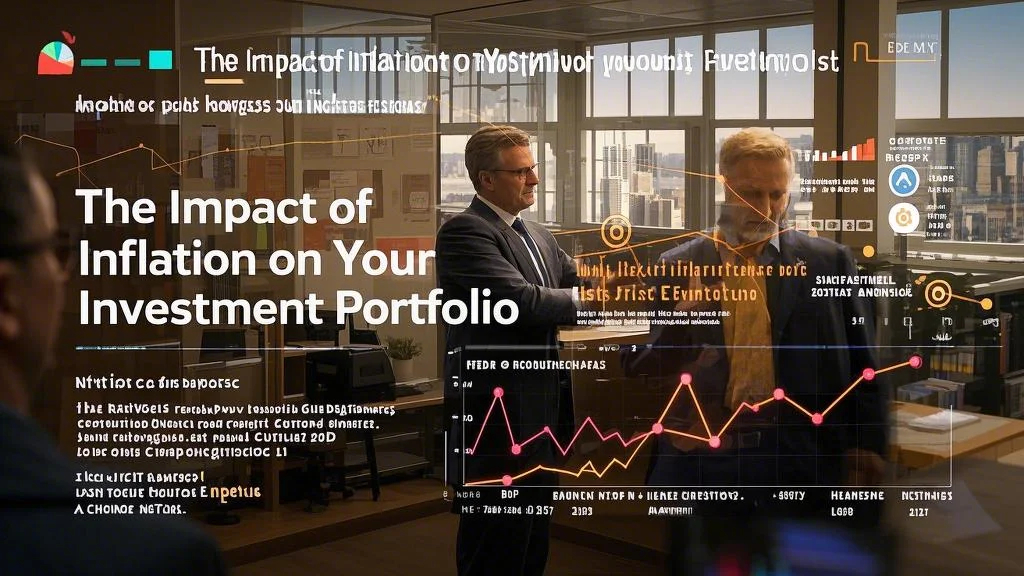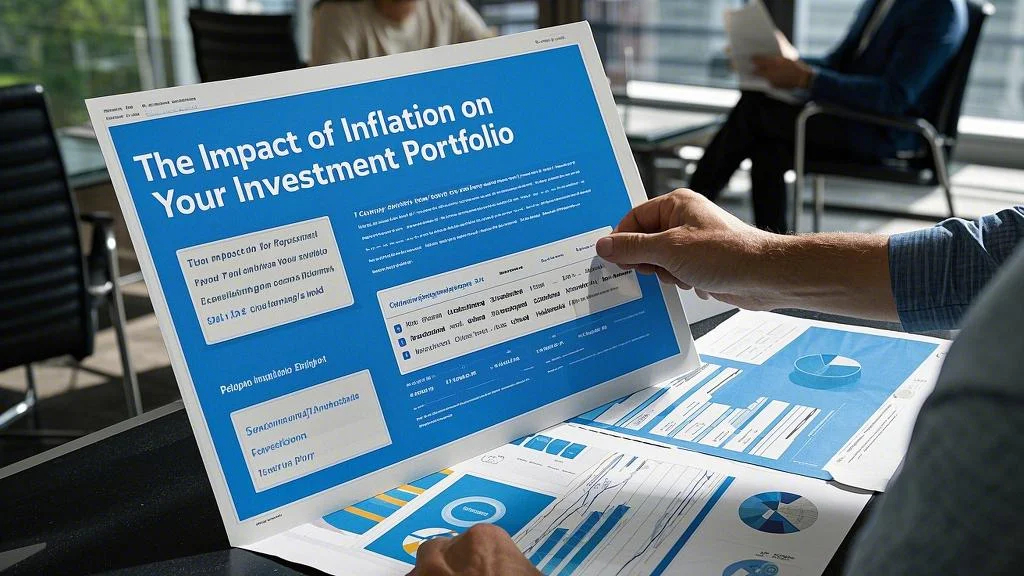The Impact of Inflation on Your Investment Portfolio

Understanding the Inflation Impact on Investments
Inflation is one of the most significant factors influencing the performance of your investment portfolio. As prices rise, the purchasing power of your money decreases, which can erode the real value of your returns. The inflation impact on investments varies across asset classes. For example, fixed-income investments like bonds tend to suffer during inflationary periods, as the fixed interest payments lose value over time. On the other hand, tangible assets such as real estate and commodities often perform well, as their values typically rise with inflation. Equities can be a mixed bag, with some companies able to pass on higher costs to consumers while others struggle to maintain profitability. Understanding how inflation affects different investments is crucial for building a resilient portfolio that can withstand economic challenges.
Best Inflation Hedges to Protect Your Portfolio
To mitigate the inflation impact on investments, investors often turn to inflation hedges. These are assets that tend to retain or increase in value during periods of rising prices. Real estate is a classic example, as property values and rental income often rise with inflation. Commodities like gold, silver, and oil are also popular hedges, as their prices are closely tied to inflationary trends. Treasury Inflation-Protected Securities (TIPS) are another option, as they adjust their principal value based on inflation rates. Additionally, equities in sectors like energy, healthcare, and consumer staples can provide a hedge, as these companies often have pricing power and consistent demand. By incorporating inflation hedges into your portfolio, you can protect your wealth and maintain purchasing power during inflationary periods.
How Economic Recession Predictions Influence Investment Strategies
Inflation and recessions often go hand in hand, making it essential to consider economic recession predictions when planning your investment strategy. During a recession, economic activity slows, unemployment rises, and corporate earnings decline, leading to increased market volatility. However, certain investments tend to perform better during downturns. Defensive sectors like utilities, healthcare, and consumer staples are less sensitive to economic cycles and can provide stability. Additionally, high-quality bonds and dividend-paying stocks can offer reliable income streams. By understanding the potential impact of a recession and adjusting your portfolio accordingly, you can reduce risk and position yourself for long-term success. Staying informed about economic recession predictions allows you to make proactive decisions and navigate uncertain times with confidence.

Stock Market Forecast: Navigating Inflation and Recession Risks
As inflation and recession risks loom, the stock market forecast becomes increasingly important for investors. Inflation can lead to higher interest rates, which often weigh on equity valuations, particularly for growth stocks. However, value stocks and companies with strong pricing power may fare better. Additionally, sectors like technology, renewable energy, and healthcare are expected to continue growing, driven by long-term trends. During a recession, market volatility typically increases, creating opportunities for savvy investors to buy undervalued stocks. By staying informed about the stock market forecast and focusing on high-quality companies, you can navigate the challenges of inflation and recession while positioning your portfolio for future growth.
The Role of Interest Rate Hikes in Shaping Investment Decisions
Interest rate hikes are a common response to inflation, but they can have significant implications for your investment portfolio. Higher interest rates increase borrowing costs for businesses and consumers, which can slow economic growth and impact corporate earnings. For fixed-income investors, rising rates lead to lower bond prices, as existing bonds with lower yields become less attractive. However, certain sectors, such as financials, tend to benefit from higher rates, as they can charge more for loans and improve their profit margins. Understanding the impact of interest rate hikes is crucial for adjusting your investment strategy. By focusing on sectors that perform well in a rising rate environment and diversifying your portfolio, you can mitigate risks and capitalize on opportunities.
Building a Resilient Portfolio in an Inflationary Environment
To protect your portfolio from the inflation impact on investments, it’s essential to adopt a diversified and strategic approach. Start by incorporating inflation hedges like real estate, commodities, and TIPS. Focus on high-quality companies with strong balance sheets and pricing power, particularly in defensive sectors. Additionally, consider increasing your allocation to international investments, as diversification across geographies can reduce risk. Regularly reviewing and rebalancing your portfolio is also important, as market conditions and economic outlooks can change rapidly. By staying informed about economic recession predictions and the stock market forecast, you can make proactive adjustments and ensure your portfolio remains resilient in the face of inflation and other economic challenges.
Conclusion: Preparing Your Portfolio for Inflation and Beyond
Inflation is a powerful force that can significantly impact your investment portfolio, but with the right strategies, you can protect your wealth and even find opportunities for growth. By understanding the inflation impact on investments, incorporating inflation hedges, and staying informed about economic recession predictions and the stock market forecast, you can build a resilient portfolio that withstands economic challenges. Additionally, considering the implications of interest rate hikes and adjusting your strategy accordingly can help you navigate uncertain times with confidence. By taking a proactive and diversified approach, you can ensure your portfolio remains strong and positioned for long-term success, no matter what the economic future holds.